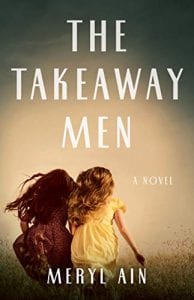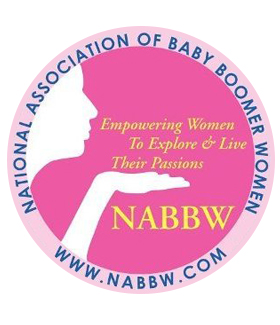What’s A Grandmother to Say About the COVID-19 Pandemic?
By Meryl Ain for the NABBW
It’s a beautiful day in my neighborhood and a wonderful morning for a walk. It’s early so hardly anyone is out yet, enabling me to pull my mask low on my face breathing in the sweet fragrance of the season, noting that this is exactly what spring smelled like when I was a child.
I stop to take photos of the gorgeous pink and yellow and orange tulips, which remind me of how my mother lovingly planted the bulbs in our backyard garden each year. I spot a couple of robin redbreasts. I haven’t yet encountered a cardinal, but sure as it’s spring, I know I will. Ever since the first cardinal appeared in my backyard after my mother’s death 13 years ago, I have interpreted its visit as a sign from my mother.
 I often think about my mother’s wise advice on a vast variety of topics, but what would she say about the coronavirus pandemic? She lived her whole life, passing away at 85, without experiencing anything even close.
I often think about my mother’s wise advice on a vast variety of topics, but what would she say about the coronavirus pandemic? She lived her whole life, passing away at 85, without experiencing anything even close.
True, her eight- year- old brother, who had contracted polio, died from pneumonia when she was four. I was never sure how much she remembered, but my grandmother talked about him constantly. As I grew up it was a cloud hanging over me as I began to grasp the enormity of the tragedy.
My mom saw plenty in her lifetime. She enlisted in the Women’s Army Corps in World War II after she saw a film about Hitler. She immediately went to sign up following her college graduation. And of course, like everyone alive during this time period, she also lived through the Depression, the Cold War, the Red Scare, the Cuban Missile Crisis, September 11, hurricanes, family tragedies, and innumerable losses.
I know what she had to say about all those things. But what would she say about the pandemic? Now that I’m a grandmother, my children and grandchildren look to me for inspiration and advice. What do I say about the coronavirus pandemic to my children and grandchildren?
I know what we all think about it. And I agree. It’s unimaginable, devastating, crushing. We have friends and neighbors who have gotten very sick and some have died. It’s heartbreaking. And it’s disappointing — my niece, Molly, had to postpone her wedding. Parties have been cancelled and postponed. So have once-in-a-lifetime events like graduations and proms.
On a personal level, I have no idea whether the events planned around my book launch in August will take place physically, virtually, or at all. In fact, my publication date for The Takeaway Men, August 4, is when deaths are projected to peak at 135,000, up from an earlier estimate of 60,000. Coincidentally, one of the main themes of the book is the Resilience of Holocaust survivors, something we might want to consider in these troubling times.
As projections for sickness and death continue to mount, we all know what’s bad about the pandemic and we certainly shouldn’t minimize it for our children and grandchildren. We need to acknowledge their feelings and their fears. But is there anything about it that we can learn from, take comfort in, or help us to improve as parents and as human beings?
We have lots of time to think and ponder. The pandemic forces us to contemplate what is essential. Stripped of the need and the ability to use and enjoy the possessions we might have once thought were important – the cars, the clothes, the jewelry, the vacations, the restaurants. We are stripped bare as human beings to consider: What is the meaning of our lives, what is our responsibility to others, and what wisdom can we impart to those we love and have nurtured? Having attained seniority, we are now called upon to be teachers and leaders. Here are a few things we can impart:
 We have lived long enough to learn how to better live with disappointment. Every life must have some. We can model resilience for our children and grandchildren.
We have lived long enough to learn how to better live with disappointment. Every life must have some. We can model resilience for our children and grandchildren.- We have learned to miss and appreciate physical contact. What a thrill it is to hug a grandchild. Technology enables us to tell them how much we miss then and send virtual hugs.
- We have time to ponder our relationship to the environment and our responsibility to it. We can resolve to do better.
- We can think about our responsibility to our family, to our community, to those who are less fortunate. How can we contribute to making a better family, a better community, a better world?
- We can eat healthier. We can exercise. We can enjoy the fresh spring air.
- We can be creative.
- We can be kinder, more understanding, and more forgiving. We can more fully understand that we never truly know the challenges others are facing.
- We can comprehend that we do not control the world, but we can control ourselves.
So, yes, my mother who would be 99 now, would certainly agree to all of the above. She would also add the advice that I try to live by and share with my children and grandchildren. “Get yourself a project,” “Count your blessings,” and most of all, “Remember, nothing is permanent; this, too, will pass.”
Meryl Ain’s essays have appeared in Huffington Post and other publications. Her debut novel, The Takeaway Men, will be published in August. Her non-fiction books include The Living Memories Project: Legacies That Last. Find her here: Website: merylain.com/; email: merylain@gmail.com


